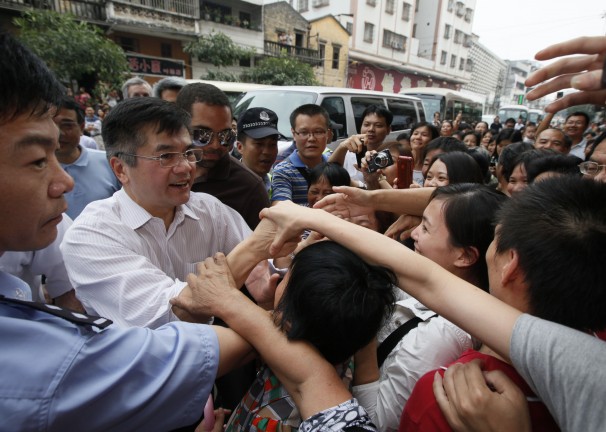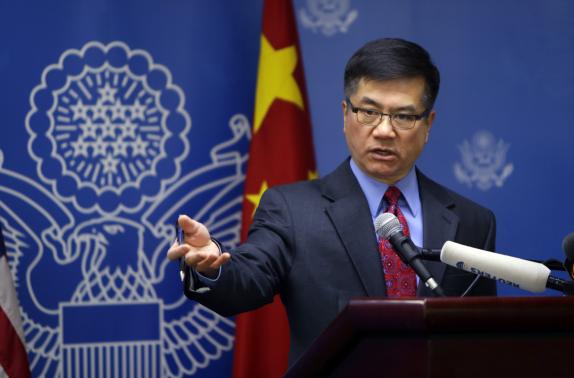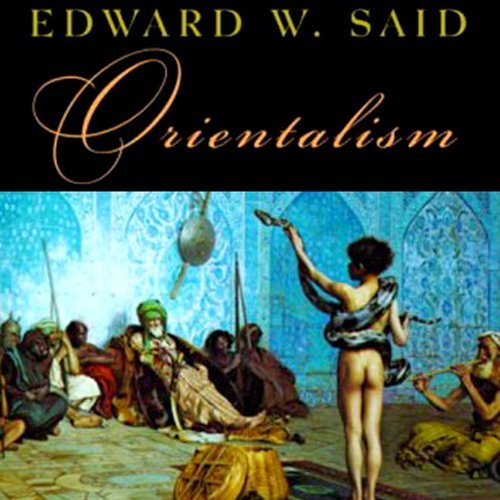
By most accounts, Gary Locke — former governor of Washington (and the first Asian American to do so), and later Secretary of Commerce for the Obama administration in its first term — has excelled in his most recent position, which he has held since 2011: that of America’s Ambassador to China.
The first Chinese American to hold the position (his predecessors have all been White), Locke has earned himself the reputation of being a fair and unassuming ambassador (a virtual prerequisite for this specific type of position); one whose low-key nature has helped ease relationships between America and one of its largest economic and militaristic peers on the global stage. Although his position requires Locke to firmly but diplomatically represent American positions to the Chinese government — positions that aren’t by definition always going to be popular with China’s top officials — Locke has reportedly performed this task effectively.
And, it is precisely this firm but low-key persona that has made him something of a superstar with street-level Chinese residents, a tactic he might have learned from his train-riding, man-of-the-people compatriot, Vice President Joe Biden.

The reason for the fascination, many here posit, is that when Chinese look at this backpack-toting American envoy with a Chinese face, they see everything their own leaders are not — leaving authorities struggling for how best to respond to his increasingly evident popularity.
Ask about Locke’s maiden speech as ambassador to the American Chamber of Commerce, in which he challenged China to reform its foreign investment policies and protect intellectual property, and you might get blank stares. But almost everyone knows about the backpack, the Starbucks coupon, the cattle-class airline seat.
Unfortunately, this man-of-the-people organic celebrity has ruffled quite a few feathers among Chinese top officials, who understand that Locke’s popularity is due to the juxtaposition of his down-home attitudes with the accepted opulence enjoyed by China’s own political leaders. Locke’s presence in China is a clear political and cultural threat to the Chinese Communist Party: one that challenges the notion presented by the CCP that Party leaders are in a position of greater authority — and thus are deserving of greater reward — than the average Chinese citizen.
Thus, throughout Locke’s tenure as ambassador, China has launched scathing criticisms of Locke, mostly calling him a puppet of America and later limiting state-run media outlets from covering his official actions. Again, from the Washington Post:
For example, on Aug. 15, the Guangming Daily — a Communist Party newspaper in Beijing — ran a commentary under the headline: “Be Vigilant to Neo-Colonialism of America Brought by Gary Locke.”
“No followers, no guards, no flowers, no applause or warm welcoming extravagant show, the family just arrived in Beijing with luggage, just like ordinary people,” the commentary said of Locke’s arrival. “Obviously, such kind of style will gain the hearts of ordinary Chinese more.”
But it warned, “His Chinese blood attracts the eyes of Chinese around the world, enables him to win public opinion.” And, it said, “Who knows that this just exposes the evil purpose of the U.S., to use a Chinese to play off against Chinese and to instigate political turbulence in China?”
So, maybe it should come as no surprise that in the wake of Locke’s recent resignation from the position, China News Services published a scathing editorial that, for one of the first times to my knowledge, invoked powerful racial imagery to characterize the outgoing ambassador.
In their article titled “Farewell Gary Locke” (a reference to Mao Zedong’s 1950’s editorial bidding adieu to US ambassador Leighton Stuart), China News Service, a state-run news organization opens with this provocative first sentence (from the Google translate) (emphasis mine):
Locke was born in a third-generation Chinese-American, and his “yellow white heart” banana man became the property of the advantages of Obama’s foreign policy.
The editorial goes on to discuss how bananas, yellow on the outside and white on the inside, rot to reveal a “queasy black” core, a likely overt (and hugely racist) reference not only to Locke’s supposed cultural Whiteness but also a disparagingly anti-Black criticism of the man purportedly pulling Locke’s strings: America’s first African American president. Following various critiques of Locke’s farewell speech and the policies discussed therein, the editorial describes Locke as an interloper and ends with his enthusiastic expulsion from China’s shores.
The term “banana” has been historically used as a slur to refer to American-born Asians, and its usage here invokes the long-standing cultural tension within the Asian American community between Asia- and US-born Asians. It has been historically used to characterize American- (and Canadian-) born Asians as White-washed, as inauthentically Asian, as Uncle Tom’s by accident of birth.
Ambassador Gary Locke, like myself and many other second generation Asian Americans, was born in a racially and ethnically polarized world that has little notion of where to place the hyphenated Asian American identity. Like Locke, I appear Chinese; and, like Locke, my relationship with the Asian homeland of my parents and grandparents is entirely second-hand. Like Locke (and unlike Locke’s predecessor, John Huntsman, Jr.), my Mandarin is shoddy at best, and embarrassingly infantile (no, I couldn’t read the article I linked above in its native language).
In the Asian American blogosphere, we focus strongly on the Asian American experience in America, and how our non-White appearance has been historically and inexorably linked to a Perpetual Foreigner narrative that asserts an inescapably alien, inauthentic, and un-American status for Asian Americans. Though the specifics have oscillated over time, Asian Americans are still viewed by the American mainstream through the exotic, Orientalist lens first described by Edward Said.
This Perpetual Foreigner stereotype, which assumes implicit loyalty and national ties to Asia, forgets that American-born Asians are treated with similar charges of “inauthenticity” by Asians in our respective “motherland”. In my own experience, in countries where my East Asian appearance is unremarkable, the fact of my broken and illiterate Mandarin, my cultural habits and speech patterns, and even my physical size and body shape mark me as “foreign” and “White-washed” first, and “Chinese” a distant second. While it’s clearly possible for Asian Americans to challenge this image — see Locke’s popularity with street-level Asians as an example, as well as the overseas success of expat Asian American artists like MC Jin — the undercurrent of inauthenticity or not-quite-Asian-ness is never fully escaped.
The language used by China News Service against Ambassador Locke were powerfully disheartening to me, because they underscored the feeling of disconnectedness and hyphenated-ness that specifically defines the 1.5- or second-generation Asian American identity. To non-Asian Americans, we aren’t quite White enough to call America home. To first-generation or US-born Asians, we aren’t quite Asian enough to call Asia home. Either way, both “sides” of our identity reject who we are, and so we are left in a racial and cultural limbo, where we are defined exclusively by who and what we are not; where all we are left with is the persona of “imposter” at every angle.
This has historically bred inter-Asian conflict between so-called FOBs (a slurred reference to “Fresh-off-the-Boat”) and ABCs (American-born Chinese) in America. Ironically, Asian- and US-born Asians may view one another with cultural disdain, but these differences are undetectable to the non-Asian American, who views all Asian Americans, regardless of our place-of-birth, as a homogenized Other that just doesn’t quite fit in; and which is also invisible to the Asian in Asia, who can approach every Asian American living outside of Asia as fundamentally inauthentic and detached from our cultural and national heritage.
It is exactly this displacement of the Asian American identity in the racial, national, and cultural landscape that I think first motivated the Asian American Movement of the late 1960’s, and which persists in multiple forms today. The Asian American Movement aims to provide a counter-narrative to the idea that Asian Americans should be defined by our inauthenticity — as Whites, as Americans, as Asians.
Rather, the Asian American Movement is an effort to empower Asian Americans to reappropriate the conversation, and to assert and define the authenticity of the Asian American identity, itself.
These efforts require us to address and challenge the frequent charges of inauthenticity that frequently fly (from both sides) between Asia- and US-born Asians; rather than to take a side, we should seek to stop framing the question around asserting a singular form of Asian authenticity in the first place. The Asian American Movement, recast in modern terms as the “AAPI” movement, asserts a diasporic framework for the Asian American & Pacific Islander identity, one where there is no singularly authentic way to be Asian. Instead, contemporary ideas of AAPI-ness assert that both first- and second-generation Asian Americans all have equally valid claims to the identity of “Asian”; that no one has the right to impose a single interpretation of authentic Asian-ness onto others; that any efforts to do so only succeed in fracturing our community. This is the kind of multifaceted AAPI identity we need to be strengthening and supporting, and not the damaging and divisive thinking that would lead to usage of words like “banana”.
I don’t know enough about the specifics of Ambassador Locke’s tenure as Ambassador to China to really say with confidence that he has been an outstanding ambassador, but he has certainly been a capable one. I know that his emphasis on leveraging diplomatic relations with America to improve human rights and the environment for Chinese citizens earns agreement from me. Either way, it is unfortunate that his farewell has been marred by regressive and divisive rhetoric from China that can only serve to further alienate and marginalize Asian Americans.
No Asian American kid — especially not one like Gary Locke who ends up being a series of Asian American firsts — should ever have to grow up feeling like he has failed at being Asian, just by virtue of who he is.

